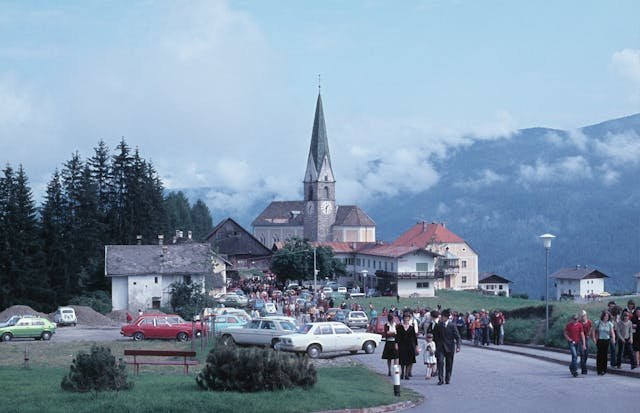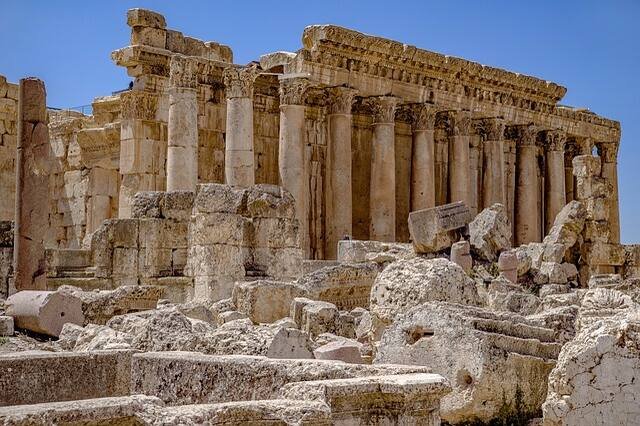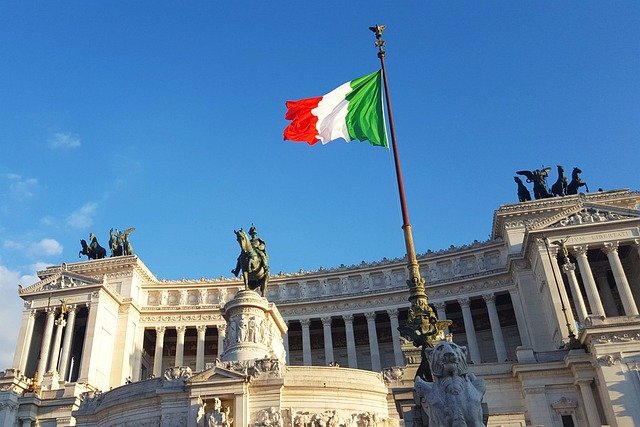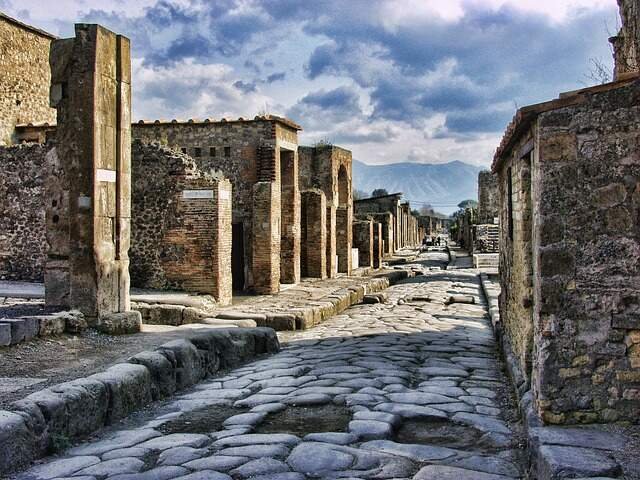Italy is known for its rich history, vibrant culture, and delectable cuisine. The Italian lifestyle is characterized by a strong emphasis on family, community, and enjoying the simple pleasures of life. Italians are known for their love of food, with meals being a time to gather with loved ones and savor each bite. From savory pasta dishes to decadent desserts, Italian cuisine is a cornerstone of the culture and a source of great pride for its people.
In addition to their culinary prowess, Italians are also celebrated for their passion for art, music, and fashion. The country is home to countless works of art and architectural marvels, from the ancient ruins of Rome to the Renaissance masterpieces of Florence. Music is deeply ingrained in Italian culture, with opera and classical music being particularly revered. Furthermore, Italians are known for their impeccable sense of style and design, with Milan being hailed as one of the fashion capitals of the world. Overall, the Italian lifestyle is a harmonious blend of tradition, creativity, and a zest for life that continues to captivate people from all corners of the globe.
The importance of leisure time in Italian culture

Italian lifestyle and culture are deeply influenced by the importance placed on leisure time. Italians are known for their enjoyment of life, and this is reflected in their approach to relaxation and leisure activities.
In Italy, leisure time is not seen as a luxury, but as a necessary part of a balanced life. It is common for Italians to take long breaks and vacations, especially during the summer months when many businesses shut down for a few weeks. This time is seen as a way to recharge and reconnect with family and friends, as well as to enjoy the beauty of their surroundings.
One of the ways Italians truly embrace leisure time is through the ritual of the “passeggiata”. This daily evening stroll through the streets allows Italians to unwind, socialize, and enjoy the company of loved ones. It is a time to admire the architecture, enjoy the sights and sounds of the city, and maybe even stop for a gelato or a glass of wine along the way.
Leisure time in Italy also often involves food. Italians are passionate about their cuisine, and meal times are seen as a time to savor and enjoy good food in good company. Whether it’s a long lunch with colleagues or a leisurely dinner with family, meals in Italy are meant to be enjoyed and shared. The importance of food in Italian culture is evident in the emphasis placed on fresh, locally sourced ingredients and the art of cooking.
In addition to the social aspect of leisure time, Italians also value activities that allow them to relax and unwind. From lounging on the beach in the summer to skiing in the Alps in the winter, Italians take full advantage of their beautiful surroundings. Whether it’s a weekend getaway to the countryside or a day trip to a nearby town, Italians make time to enjoy the natural beauty of their country.
Another important aspect of leisure time in Italian culture is the emphasis on art and creativity. Italy is home to some of the world’s greatest works of art, and Italians take pride in their rich cultural heritage. Whether it’s visiting a museum, attending a concert, or simply admiring the street art in their neighborhood, Italians make time for activities that feed their soul and inspire their creativity.
Overall, the importance of leisure time in Italian culture cannot be overstated. Italians understand the value of taking time to relax, socialize, and enjoy the beauty and culture of their surroundings. By embracing leisure time as an essential part of life, Italians are able to live fully and richly, finding joy and meaning in the simple pleasures of everyday life.
The role of family and community in Italian lifestyle

Family and community play a central role in Italian lifestyle, shaping every aspect of daily life and influencing social interactions, traditions, and values. The concept of family is at the core of Italian culture, with strong ties and close relationships between family members forming the foundation of society.
In Italy, the family unit extends beyond immediate relatives to include grandparents, aunts, uncles, and cousins, creating a tight-knit network of support and solidarity. Family gatherings, meals, and celebrations are key components of Italian life, providing opportunities for loved ones to come together, share stories, and strengthen bonds.
The importance of family is reflected in Italian attitudes towards individualism and independence. Italians prioritize the well-being and happiness of their families above all else, often making sacrifices for the greater good of the group. This collective mindset fosters a sense of unity and shared responsibility, with family members supporting one another through both joyous occasions and challenging times.
Community also plays a significant role in Italian lifestyle, with tight-knit neighborhoods and social networks forming the fabric of Italian society. In cities and small towns alike, residents often have strong connections with their neighbors, exchanging greetings on the street, sharing meals, and offering assistance when needed. These communal bonds create a sense of belonging and belongingness, fostering a supportive environment for individuals to thrive.
Italian communities are characterized by a sense of togetherness and camaraderie, with shared values and cultural traditions bringing people together. Festivals, parades, and religious celebrations are common in Italy, providing opportunities for communities to gather, socialize, and celebrate their shared heritage. These events serve as a reminder of the importance of community in Italian life, reinforcing the ties that bind individuals together.
The role of family and community in Italian lifestyle extends beyond social interactions to shape daily routines, lifestyle choices, and attitudes towards work and leisure. Italians often prioritize spending time with loved ones, engaging in family activities, and participating in community events over individual pursuits. This focus on interpersonal relationships and shared experiences contributes to a sense of connection and belonging that is deeply ingrained in Italian culture.
In Italian society, the family unit is considered a source of strength and support, providing a sense of stability and security in an ever-changing world. Strong family ties and close-knit communities contribute to the overall well-being and happiness of individuals, fostering a sense of connectedness and belonging that is cherished by Italians of all ages.
In conclusion, the role of family and community in Italian lifestyle is central to the fabric of society, shaping social interactions, traditions, and values. The strong bonds between family members and neighbors create a sense of unity and solidarity that is a defining characteristic of Italian culture. From family gatherings to community events, the importance of interpersonal relationships and shared experiences is evident in every aspect of Italian life, highlighting the enduring influence of family and community on the daily lives of Italians.
The art of savoring food and drinks in Italy

In Italy, the art of savoring food and drinks is deeply ingrained in the culture. Italians have a deep passion for good food and wine, and they take great pride in the quality and preparation of their meals.
First and foremost, mealtime in Italy is seen as a sacred ritual that brings family and friends together. Italians believe that food is meant to be enjoyed slowly, with each bite savored and appreciated. This is why it is common to see Italians spending hours around the dining table, enjoying multiple courses and engaging in lively conversation.
One of the most important aspects of Italian cuisine is the use of fresh, locally-sourced ingredients. Italians place a high value on using the best quality produce, meats, and cheeses in their dishes. This commitment to quality is evident in the delicious flavors and aromas that permeate Italian cuisine.
In addition to using fresh ingredients, Italians also prioritize simplicity in their cooking. Italian dishes are often characterized by their minimalistic approach, allowing the natural flavors of the ingredients to shine through. Whether it’s a simple pasta dish with fresh tomatoes and basil or a classic pizza Margherita with just a few key ingredients, Italians understand that sometimes less is more when it comes to cooking.
When it comes to meals, Italians also believe in the importance of moderation. While they may indulge in rich dishes like pasta, pizza, and gelato, Italians also understand the importance of balance. They often accompany their meals with a glass of wine, which is seen as a way to complement and enhance the flavors of the food.
Speaking of wine, Italians have a long-standing tradition of winemaking that dates back thousands of years. Italy is known for its diverse and robust wine industry, with each region producing its own unique varietals. From the sparkling wines of the Veneto region to the bold reds of Tuscany, there is a wine for every palate in Italy.
In addition to wine, Italians also have a deep appreciation for coffee. Italy is famous for its espresso culture, with coffee bars lining the streets of every city and town. Italians start their day with a strong shot of espresso and often enjoy another after meals as a way to aid digestion.
In Italy, the art of savoring food and drinks is not just about nourishing the body, but also about nourishing the soul. Italians believe that food is a way to connect with others, celebrate life’s moments, and express love and gratitude. So the next time you sit down to a meal, take a cue from the Italians and slow down, savor each bite, and appreciate the simple pleasures of good food and drink. Buon appetito!
The significance of fashion and style in Italian culture

Italy is known worldwide for its rich history, stunning architecture, delicious cuisine, and of course, its impeccable sense of fashion. Fashion and style play a significant role in Italian culture, reflecting the country’s obsession with beauty, elegance, and sophistication.
Italian fashion has a long and illustrious history dating back centuries to the powerful city-states of Florence, Venice, and Milan. The Italian Renaissance, in particular, was a period of great artistic and cultural innovation that laid the foundations for Italy’s reputation as a global fashion powerhouse. Today, Italian designers such as Versace, Dolce & Gabbana, Gucci, and Prada continue to dominate the industry with their bold and luxurious creations.
Fashion is not just about clothing in Italy—it is a way of life. Italians take pride in their appearance and believe that dressing well is a sign of respect for oneself and others. The streets of Italian cities are filled with impeccably dressed men and women who effortlessly blend tradition with modernity. No matter where you go in Italy, you will find people who exude style and confidence in their attire.
Italian fashion is also closely tied to the country’s rich cultural heritage. Traditional Italian craftsmanship, such as the art of tailoring, leatherworking, and shoemaking, is highly valued and passed down from generation to generation. Italian fashion houses often collaborate with local artisans to create stunning pieces that combine modern design with traditional techniques.
Fashion shows and events are a common occurrence in Italy and are attended by fashionistas, celebrities, and industry insiders from around the world. Milan Fashion Week, held twice a year, is one of the most prestigious events on the fashion calendar and showcases the latest collections from top Italian designers. It is a time for designers to present their vision to the world and for fashion enthusiasts to get a glimpse of the trends that will dominate the seasons ahead.
Italian style is not just about wearing expensive clothes or following the latest trends—it is about a certain attitude and confidence that sets Italians apart. The concept of “la bella figura,” or making a good impression, is deeply ingrained in Italian culture and influences how people present themselves to others. Italians pay attention to every detail of their appearance, from the way they style their hair to the accessories they choose to wear.
Italian fashion is not just for the elite or the wealthy—it is accessible to everyone. Italian street style is a global phenomenon, with fashion bloggers and influencers flocking to Italy to capture the effortlessly chic looks of everyday Italians. The key to Italian style is not about following rigid rules, but about expressing your individuality and personality through your clothing choices.
In conclusion, fashion and style are integral components of Italian culture, reflecting the country’s history, creativity, and emphasis on beauty. Italian fashion is a celebration of craftsmanship, innovation, and self-expression, and continues to inspire designers and fashion-lovers around the world. Italy’s unique blend of tradition and modernity has solidified its reputation as a global fashion capital, where style is not just a trend, but a way of life.
Exploring Italy's rich history and traditions

Italy is a country known for its rich history and deep-rooted traditions. From the ancient Roman Empire to the Renaissance period, Italy has played a significant role in shaping the culture and lifestyle of not just Italians, but people all around the world.
One of the most iconic aspects of Italian history is the Roman Empire. At its peak, the Roman Empire encompassed a vast area and had a profound impact on art, architecture, philosophy, and politics. Today, remnants of the Roman Empire can still be seen in Italy in the form of ruins, such as the Colosseum in Rome and the Forum.
The Renaissance period is another crucial chapter in Italy’s history. This cultural movement, which began in Florence in the 14th century, marked a period of great artistic and intellectual achievements. Artists like Leonardo da Vinci, Michelangelo, and Raphael flourished during this time, creating masterpieces that continue to be admired today. The Renaissance also saw advancements in science and literature, with figures like Galileo Galilei and Dante Alighieri making significant contributions.
Italy’s tradition of opera also holds a special place in its history. Opera was born in Italy in the late 16th century and has since become a beloved art form around the world. Italian composers like Giuseppe Verdi and Giacomo Puccini are renowned for their powerful and emotionally charged operas, which continue to be performed in theaters worldwide.
Italian cuisine is another cornerstone of the country’s culture and tradition. Italian food is celebrated for its simplicity and high-quality ingredients. From pasta and pizza to gelato and espresso, Italian cuisine has captured the hearts and taste buds of people everywhere. Each region of Italy has its own culinary specialties, showcasing the diverse flavors and ingredients that make Italian food so distinct.
The Catholic Church has also played a significant role in shaping Italy’s history and traditions. The Vatican City, located in Rome, is the spiritual center of Catholicism and home to the Pope. Pilgrims from around the world come to Italy to visit churches, basilicas, and religious sites, making it a hub for religious tourism.
Throughout Italy, festivals and celebrations are held to honor its history and traditions. From the colorful Carnival in Venice to the religious processions of Holy Week, Italians take great pride in their cultural heritage. These events bring communities together, fostering a sense of unity and shared identity.
In conclusion, Italy’s rich history and traditions have left a lasting impact on the world. From the architectural wonders of the Roman Empire to the artistic achievements of the Renaissance, Italy’s cultural legacy is cherished and celebrated. By exploring Italy’s history and traditions, we gain a deeper understanding of the country’s unique identity and the values that have shaped its people for centuries.
In conclusion, the Italian lifestyle and culture are rich, diverse, and deeply rooted in history. From the delicious food and wine to the emphasis on family and community, Italy offers a unique way of life that is both inviting and inspiring. Whether it be sipping espresso in a bustling cafe or exploring ancient ruins, the Italian way of living is sure to leave a lasting impression on those who experience it. So, next time you find yourself longing for a taste of La Dolce Vita, consider immersing yourself in all that Italy has to offer. Buon viaggio!


